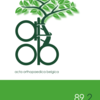Mixed manufacturer dual mobility bearing and the Exeter V40 Stem: is it safe? Short-term results in primary and revision hip replacement
total hip arthroplasty, Exeter stem, dual mobility cup, primary, revision, SERF, safety
Published online: Aug 12 2023
Abstract
The aim is to review clinical and radiological outcomes for all cases of primary and revision THA, combining a cemented stem (Exeter V40) with a dual mobility component from a different manufacturer (SERF Novae), to evaluate whether concerns regarding mixing components from different manufacturers are justified. We identified 72 hip replacements performed between May 2010 and December 2015 using the SERF Novae dual mobility cup with an Exeter V40 stem, the majority of which were cemented (90%) and revisions (58%). Patients were evaluated clinically and radiologically at a minimum of two years. There were five (6.9%) dislocations; three (4.2%) requiring revision – one of which was an intra-prosthetic disarticulation and two infections. No cases were lost to follow-up and 49 surviving cases were reviewed at a mean of 4.0 (range 1.8-8.1) years following surgery. Pain and functional outcome scores all improved. There were no radiological failures and no revisions for aseptic loosening of stem or cup. The combination of Exeter cemented stem with a dual mobility bearing from a different manufacturer results in acceptable short-term outcomes in terms of hip stability, revision rates and patient-reported measures.
